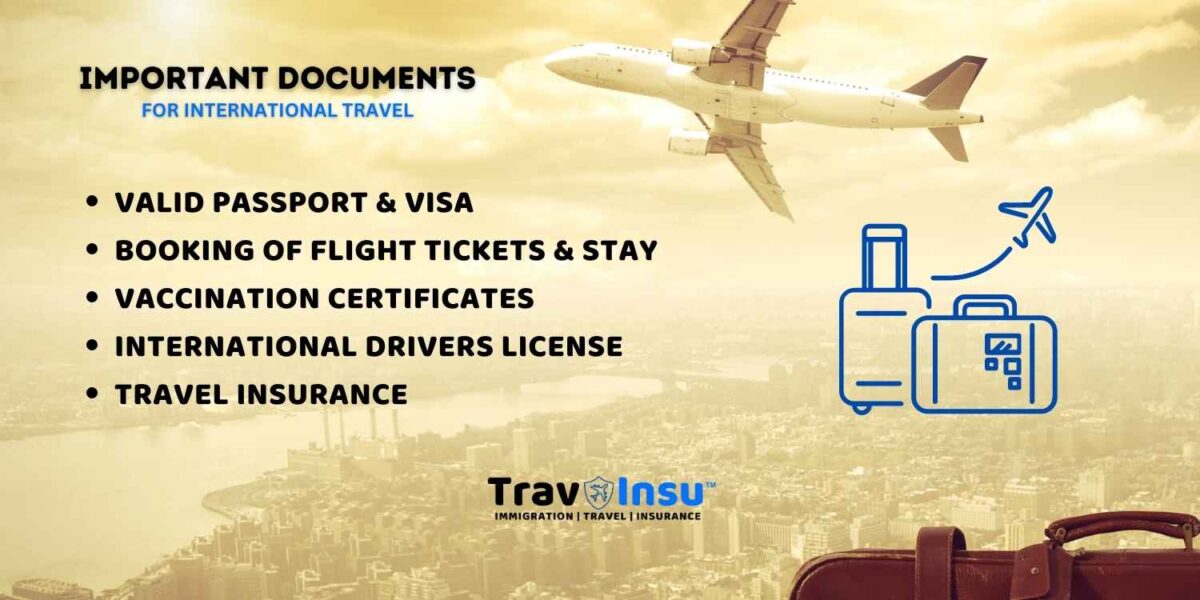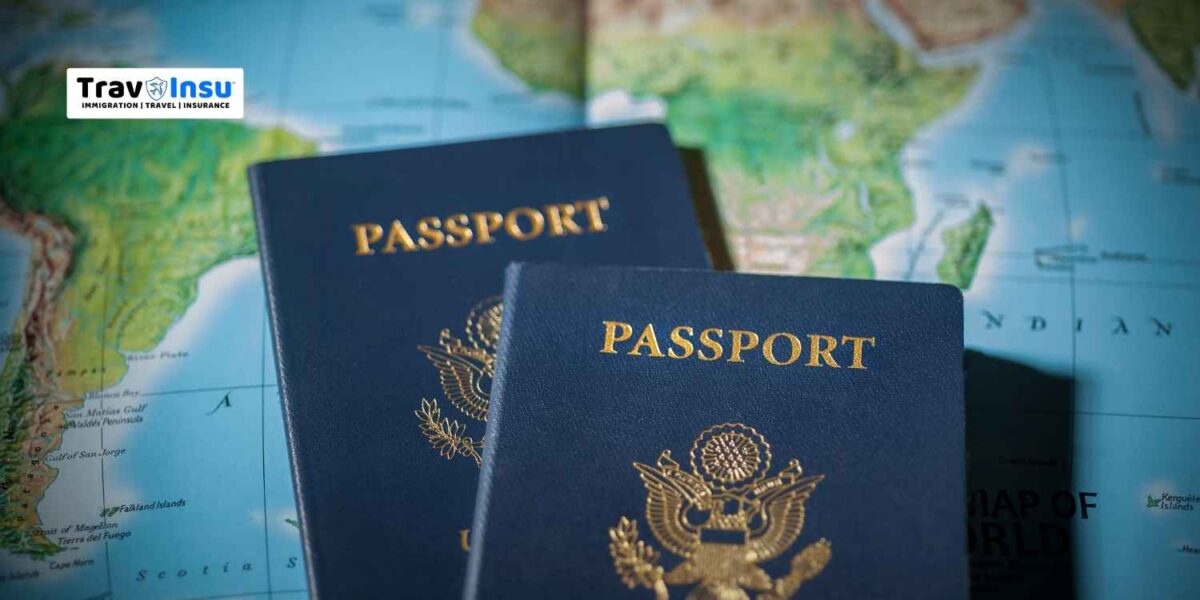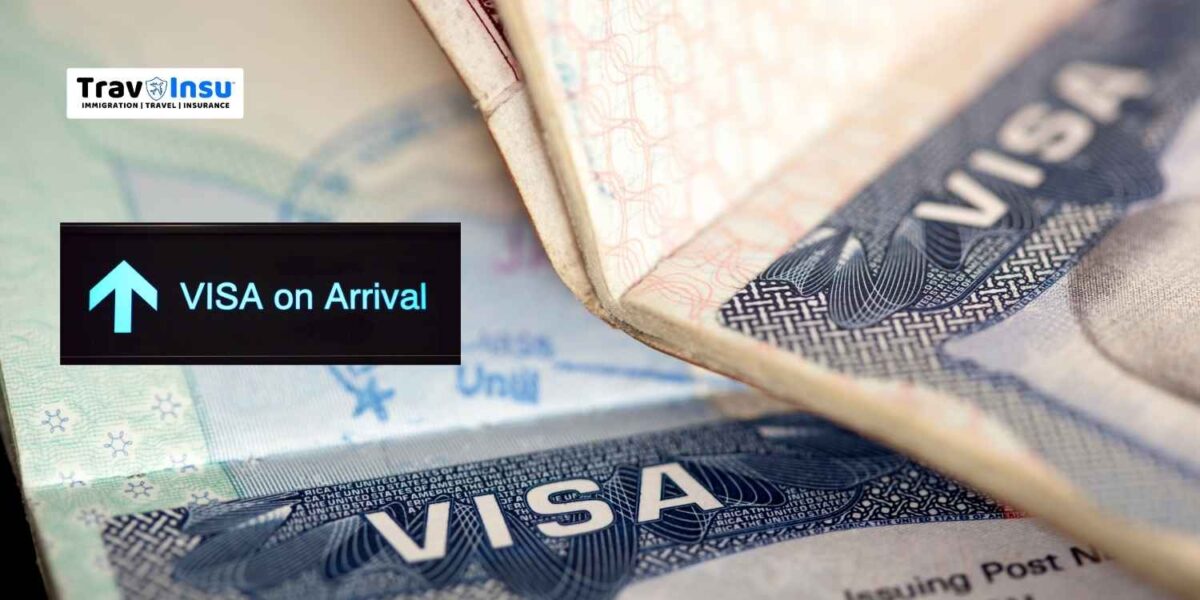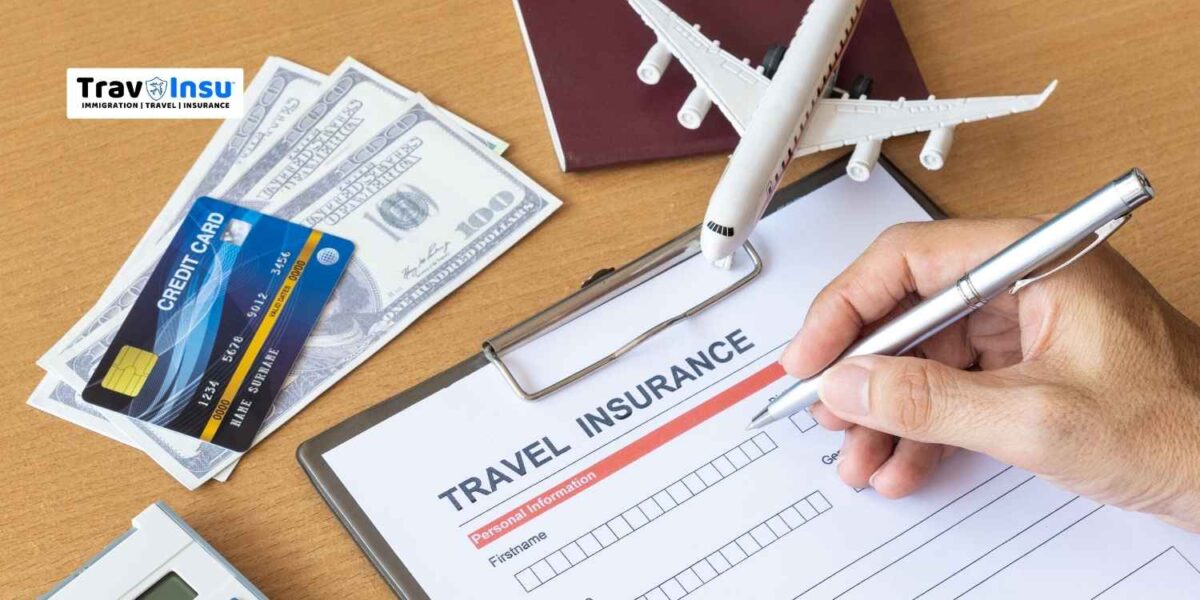Guide to Essential Documents Before Traveling Internationally

This guide to essential documents before traveling internationally will help you prepare better for your next vacation abroad.
As per IATA each year 60,000 travelers are turned back at their destination or at transfer points by the immigration authorities. This ends up costing a substantial amount of money in fines and associated costs to airlines.
IATA’s research indicates that 1 in every 25,000 international passengers boards a flight with incorrect documentation. This ends up resulting in a fine for the airline. Now you understand why airlines are so strict about checking documents proving permission to fly.
Ensuring flyers have proper documentation ensures the airlines avoid fines. Fines can average about $3,500 per passenger. Not only that, the airline then has to fly the incorrectly documented traveler back to their home country or country of origin at their own expense.
How To Create Your International Travel Documents Checklist?
You can create a travel document checklist by knowing the answers to the following questions. You’ll find the answers in the blog.
- If your passport is about to expire, can you still travel abroad?
- Do you require a visa to travel to another country?
- Should you apply for an international driver’s license?
- Do you have to provide proof of required vaccinations?
- Why should you buy travel insurance for your overseas vacation?
Five Documents You May Need For Traveling Abroad
Here is a list of 5 important documents you need before traveling abroad:
- Valid Passport
- Flight Tickets and Stay
- Vaccination Certificates
- International Driver’s license
- Travel Insurance Certificate

Valid Passport
One of the most important requirements for international travel is a passport. It is issued by the government of your country and serves as both a means of identity and authorization for traveling abroad.
Typically, your passport contains information about you, like your name, sex, date of birth, and place of birth.
It is necessary for international travel because you must provide proof of citizenship at the passport control office at the port of entry of foreign countries. Your passport is a proper identification document. You’ll need to present it when you return to your home country after traveling abroad.

Note: A passport is one of the most important documents and it also serves as one of the identification documents. Your passport must be valid for at least six months from your scheduled date of the trip abroad, many countries have this restriction in place.
Apply for a passport with the passport issuing authority in your country well in advance. If your passport is nearing the expiry date then submit a renewal application. The passport process in the US is normally completed in 10–12 weeks, however, for an additional fee, the period can be reduced to 4-6 weeks.
The US Department of State advises U.S. citizens to apply for passports and submit their applications using USPS Priority Mail Express.
VISA – Visitors International Stay Admission
When crossing international borders, many countries require foreign visitors to obtain a valid visa. You might not always need to obtain them in advance, though. Many countries offer visas on arrival to citizens of some specific countries. You need a single visa to visit all Schengen countries.
Check the official website of the destination country you are visiting to see if a travel visa is necessary before rushing to apply.

Visas, which give you permission to enter, remain in, or leave a country, are issued by the country you are visiting, unlike passports. There are different types of visas, including transit, student, employment, and tourist/ travel visas.
Check what kind of travel visa is appropriate for your intended travel before you apply.
Air Tickets And Hotel Bookings
Many countries require international visitors to provide the actual ticket and stay details like hotel bookings.
The air tickets for a return journey build comfort that the tourist plans to leave after their planned stay.
The immigration officer may check for the personal details on the air tickets so ensure you carry your actual ticket and stay details printout.
International Driver’s License
It is best to bring your driver’s license with you if you intend to drive in a foreign city. While certain countries may allow you to drive for a certain amount of time, many countries want an international driving permit, so be ready.

Several car rental companies will require you to have one before renting a car with them.
The advantages of an international driver’s license are numerous. To begin with, in some countries, it might serve as your identification. Second, having this document can lower your risk of receiving a fine if you are ever stopped by law enforcement or are involved in a car accident.
Additionally, a foreign driver’s license is translated into many languages. When speaking with local authorities about your driving in their country, helps to remove language barriers.
Vaccination Certificates
Gather your recent vaccination certificates ready if your destination requires vaccination certificates.
When entering some countries, you might need to show proof of vaccination against specific diseases. This is done to stop the disease’s progress and guard against it spreading to their population.

Find out in advance if you need a vaccination certificate for the country you are visiting. If so, be sure to be vaccinated and receive a certificate or document as proof. Some countries may ask for a vaccine passport to prove that you have not been infected with a particular virus.
People who want to travel internationally are increasingly required to get a vaccine passport in the wake of the global pandemic. A vaccine or immunity passport is documentary evidence that you are vaccinated against the disease.
Travel Insurance Certificate
Overseas travel to a foreign country is equally a risky affair, you could suddenly fall ill, get hurt, lose your possessions, or require emergency medical attention. In case of an emergency, you might also have to cancel your international trip.
Such unexpected expenses can be covered with insurance plans lowering your financial burden and helping you save money. Senior travelers are more at risk when they travel.
Travel insurance covers your financial risks and lowers out-of-pocket expenses. Some of the risks covered are:
- Medical treatment for a new sickness or illness
- Acute onset of a pre-existing condition
- Hospitalization expenses, inpatient and outpatient expenses
- Covid 19
- Emergency medical evacuation
- Repatriation of remains
Some countries require mandatory travel insurance in order to visit while other countries may not. It is advisable to get travel health insurance to protect your trip abroad. Look for a travel insurance company that offers policies that cater to your travel needs.

A word of caution: When you travel abroad, it is possible that many foreign medical facilities won’t accept your country’s travel insurance coverage and you will need to pay for treatment and then undergo a claims process in your home country to get the expenses reimbursed.
You might need to purchase supplemental insurance, emergency evacuation insurance, and insurance for travel-related mishaps like loss of luggage or delayed flights. This additional coverage may also be necessary if you need to leave a crisis area or evacuate for medical treatment.
Understand the difference between travel insurance and trip insurance.
Travel Insurance Plans
Carry your travel insurance certificate with you so that you can make claims more easily while overseas. If you do not have your certificate you can contact the customer service representative of your insurance provider to get one. The PDF files can also be downloaded to your smartphone or you can obtain a copy of your insurance policy.
Some plans you can consider are:
Safe Travels USA Comprehensive
Other Travel Documents To Carry When Traveling Internationally
Immunization Requirements for Overseas Travel for People and Pets
Find out whether there are any specific vaccination requirements before moving to a country. If you intend to relocate to another country with your family, speak with a medical professional to learn more about the immunization of adults, children, and even your pets.
Visit the relevant country’s official website to learn more about the necessary vaccinations.
Pet owners should also speak with their local vet to find out whether their animals require any extra care. Rabies vaccination is typically required, however, the requirements can change from nation to nation and from airline company to airline company with regard to flying pets.
Travel Itinerary Details
Sometimes we like to wait until the last minute to purchase the tickets, or we prefer to have them in our hands before we fly. In either case, you’ll need to have some kind of proof that you paid for it. The ticket itself or a receipt for the purchase could be included.
Tickets for events or confirmations of reservations can be used as evidence of payment for travel or lodging. To minimize questions when you arrive and they start questioning your reservation, we advise having both a digital and print copy.
You should preserve copies of your itinerary information in your travel luggage.
Doctor’s Note On Prescription Drugs
When traveling abroad, it is vital to pack any prescription medicines you want to take with you. You should always keep the appropriate documentation in its original packing and carry it with you to avoid any problems. Carry a doctor’s note along with the medications.
You may be able to purchase over-the-counter medications at your destination for common ailments like fever, headaches, etc. but some medicines may need a prescription.
Documents Required for Traveling With Children
As a parent, it is your responsibility to ensure the security of your kids, especially when visiting another country. For the same reason, airlines request identification from you as their child’s parent or legal guardian before allowing you to board a flight with your child.
Here are 3 essential documents that you’ll have to bring when you are traveling with children:
1. Proof of Relationship With The Child
Always have a document on you that proves your relationship with your child when traveling.
To prevent the complications that can result from that when going through border controls or security, the following documents can be used as evidence of a relationship with your child:
- Adoption papers
- Marriage certificate
- Court order
- Renaming certificates
- The child’s birth certificates
It’s also a good idea to bring the child’s identification (ID). While most airlines do not require ID for passengers under the age of 18, some may. A “better safe than sorry” attitude is the wisest course of action.
A school-issued ID or library card may be used by children over the age of 15. Your best bet is a government-issued ID or birth certificate, though.
2. Child Travel Consent
A Child Travel Consent must be signed by both parents or legal guardians if your child is traveling alone, with only one parent, or with a person who is not their legal guardian. A letter of permission to travel is another name for a child’s travel consent.
A Child Travel Consent essentially indicates to the transportation companies and customs officers that the child has been granted permission to travel by both parents or legal guardians by having their signatures on the document.
Note: To reduce the likelihood that travel authorities may question the authenticity of your child’s travel consent, have it notarized by the appropriate authority.
Both legal parents with valid IDs must be present to sign the letter of consent in order to acquire notarized authorization for traveling alone with children.
3. Passport
Your children’s passports are an absolute necessity. It serves as both your child’s primary form of identity and evidence of citizenship in your country.
Depending on the age of your child, there are various requirements for passport applications. Check the requirements for your country based on the age of your child.
If you are traveling with children under two years old, an airline carrier may ask you for identification while checking in. Any government-issued ID, such as a birth certificate, will do.
If the baby is younger than two weeks old, a doctor’s note confirming that the child is fit to fly may be required. It is a good idea to call the airline in advance to find out if this is necessary.
If you’re over 36 weeks pregnant, some airlines may demand a doctor’s note.
Make Copies of All Essential Travel Documents
It is common knowledge that if you are traveling abroad, you should make a copy of all necessary travel documents. Your identification documents may be required when traveling, checking into a hotel, or going to events.
Make digital copies of your passport, international driver’s license, ID, tickets to flights, and any reservations.
Making many copies and putting them in various bags is a really wise piece of advice. Give one copy to a friend or member of your family, store one in a suitcase, and bring one with you on travels. Your carry-on luggage should always contain your originals. All of these will be useful in the unfortunate event that you misplace any travel documents.
Frequently Asked Questions
How can I provide proof of travel when I don’t know my travel plans?
Proof of travel can be plane ticket confirmation, booking tickets, business letters, or employment letters from your employer. You can provide a copy of your flight itinerary, plane ticket, plane e-ticket, hotel bookings, etc.
Is hotel booking an essential document when traveling internationally?
It would depend on the country you were traveling to. For instance, to obtain your Schengen visa, proof of lodging arrangements, or if you have been invited, a written invitation from the host together with a copy of his or her passport would be necessary.
Do I need to bring a hard copy of my plane tickets or would carrying an e-ticket be sufficient?
E-tickets are sufficient, but make sure they are full tickets and not partial ones. It is best to get a hard copy of your tickets at the airport before checking in if you want to be on the safe side.
Do I need any additional documentation for my international trip if I’m traveling during COVID-19?
Yes, additional documentation such as your COVID-19 report, vaccination certificate, etc., is required. The policies and documentation requirements may vary between airline companies and countries, and you must abide by them. You may additionally want to consider travel insurance that offers coverage for Covid-19.
Is an international driving permit mandatory?
An international driver’s permit to drive a vehicle basis your home country’s driver’s license is not mandatory if you do not plan to drive in the country you are visiting. If you plan to drive, some countries require you to have an international driver’s license permit.
Many countries require permits before you can drive a vehicle. Car rental companies may refuse to rent you a car if you do not have a permit.
Is it mandatory to get travel insurance?
It is not mandatory to buy travel insurance unless you are visiting a country that requires foreign visitors to show proof in the form of a travel insurance certificate. However, it is safe to cover your trip abroad through travel insurance, read more on the top 10 reasons to buy travel insurance.
Conclusion
Now that you are aware of all the documents needed for international travel, you can begin packing and making travel arrangements.
A lot of stress can be avoided by planning ahead. You’ll worry less and have more fun on vacation if you make sure you have all the necessary documents for your international trip.
Enjoy your trip!












